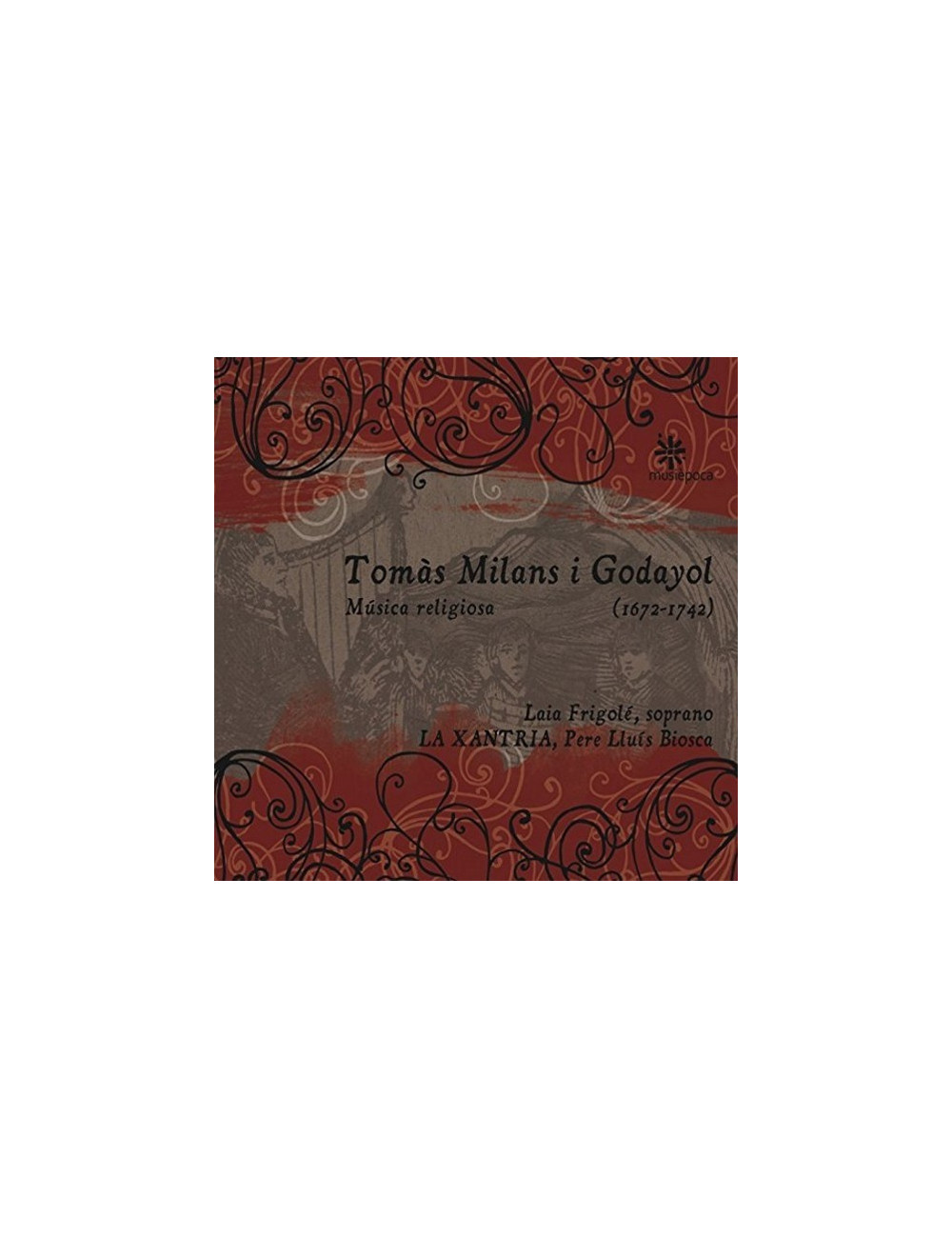

Tomàs Milans i Godayol
LA XANTRIA, Pere Lluís Biosca, director
- Litaniæ lauretanæ, lletanies de la Mare de Déu
- Salve Regina a 6
- Charitas Dei, motet per a tot temps
- Magnificat a 8
- Introducció
- Recitatiu
- Ària
- Reges Tharsis, antífona en cànon per al dia de Reis
- Nunc dimittis a 6
- Hala, zagalas, tono per al Nadal
The height of the Baroque period, at the beginning of 18th century, was a time for wars and upheavals in Catalonia, but also for the establishment of a royal court in Barcelona after three centuries without one. Because of this, the musicians and composers from Catalonia got in touch with the more advanced styles and techniques from Naples, Paris and Vienna. Tomàs Milans (1672-1742) is one of the main composers of this period, contemporary with Fux, Delalande, Caldara, Scarlatti and Albinoni, although he composed only religious music for his work as a chapelmaster in Barcelona and Girona. This recording contains a varied selection, from the Magnificat for eight voices over an ostinato to the cantata in Spanish Suspende infelice for soprano and continuo, the dramatic motet Charitas Dei, the exultant Nunc dimittis or the brilliant Litanae Lauretanae. A wide collection of forms and genres of great vitality and importance in Catalonia during the Baroque, used by one of the most important chapelmasters during that period, and performed accurately and brightly by one of the most prestigious Catalan musical groups in this kind of repertoire.
The height of the Baroque period, at the beginning of 18th century, was a time for wars and upheavals in Catalonia, but also for the establishment of a royal court in Barcelona after three centuries without one. Because of this, the musicians and composers from Catalonia got in touch with the more advanced styles and techniques from Naples, Paris and Vienna. Tomàs Milans (1672-1742) is one of the main composers of this period, contemporary with Fux, Delalande, Caldara, Scarlatti and Albinoni, although he composed only religious music for his work as a chapelmaster in Barcelona and Girona. This recording contains a varied selection, from the Magnificat for eight voices over an ostinato to the cantata in Spanish Suspende infelice for soprano and continuo, the dramatic motet Charitas Dei, the exultant Nunc dimittis or the brilliant Litanae Lauretanae. A wide collection of forms and genres of great vitality and importance in Catalonia during the Baroque, used by one of the most important chapelmasters during that period, and performed accurately and brightly by one of the most prestigious Catalan musical groups in this kind of repertoire.
Specific References

LA XANTRIA, Pere Lluís Biosca, director
- Litaniæ lauretanæ, lletanies de la Mare de Déu
- Salve Regina a 6
- Charitas Dei, motet per a tot temps
- Magnificat a 8
- Introducció
- Recitatiu
- Ària
- Reges Tharsis, antífona en cànon per al dia de Reis
- Nunc dimittis a 6
- Hala, zagalas, tono per al Nadal


